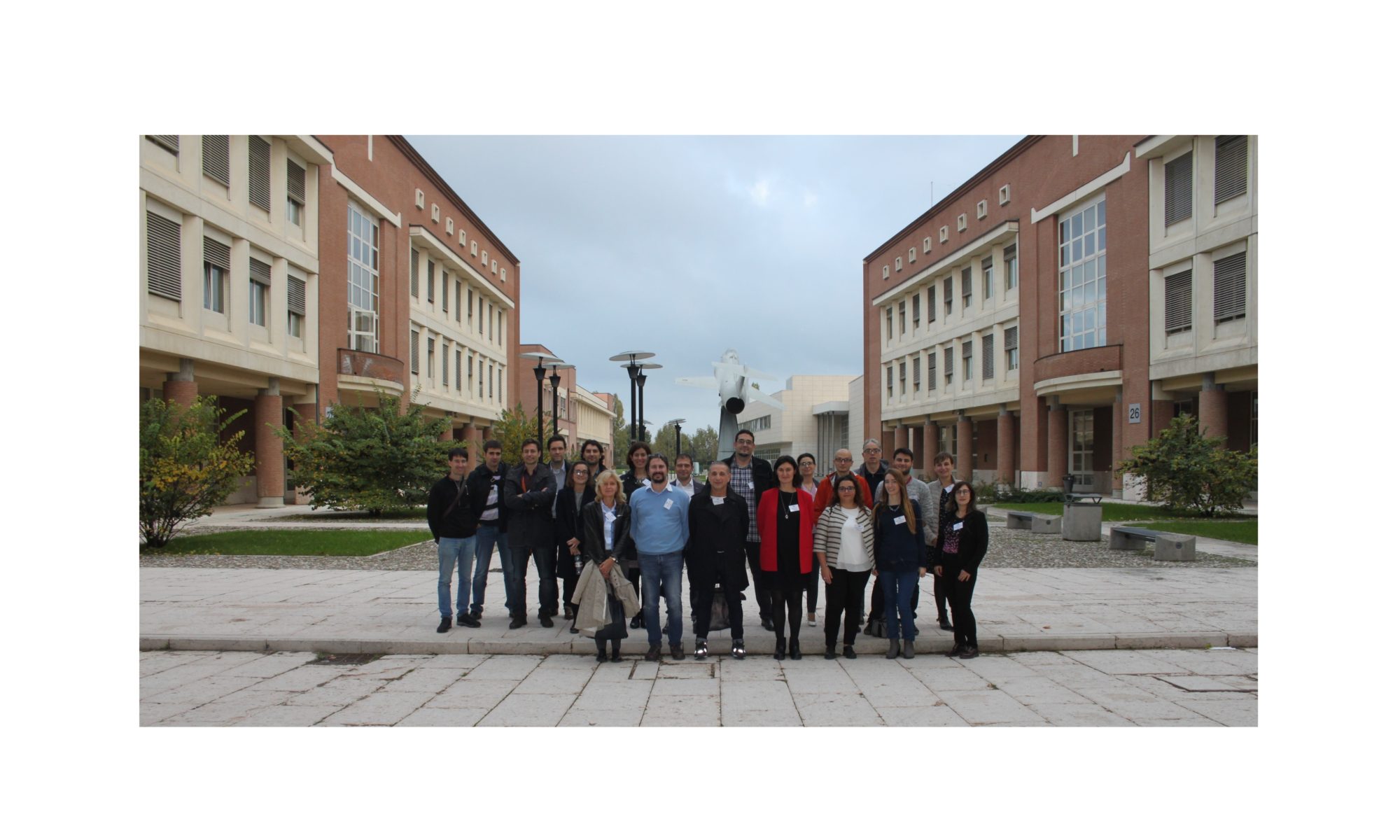The Consortium involves 4 Academic Organizations, 4 Public Administrations, a Regional in-house providing company, and a research center.
Università degli Studi di Modena e Reggio Emilia (UNIMORE) – Italy
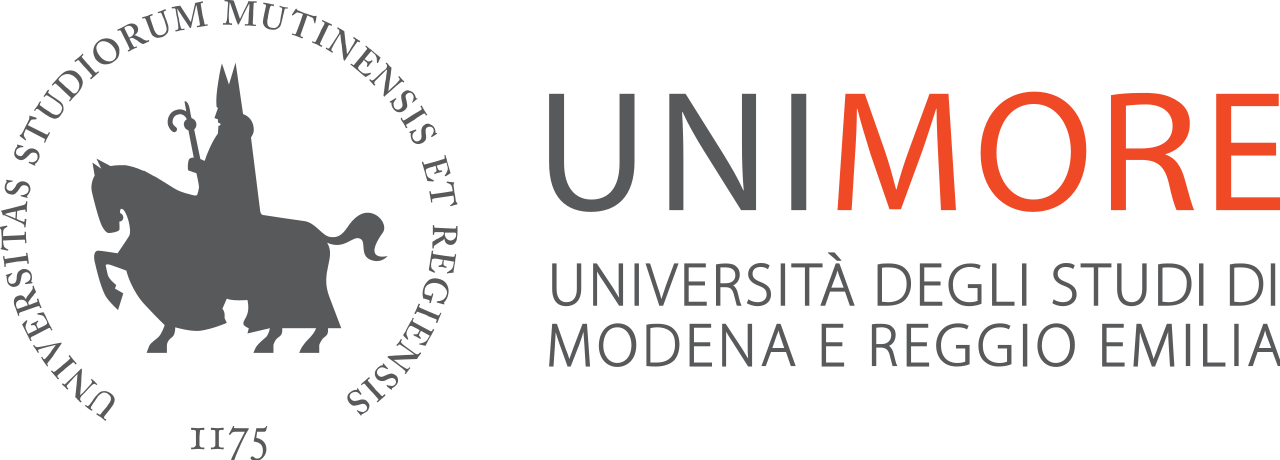 UNIMORE (1175) is third oldest University in the world, and has always been ranked among the first Italian universities for quality of teaching and research since 2007. UNIMORE is a networked campus located in the towns of Modena and Reggio Emilia. It counts about 19000 students, including 3500 postgraduates, 900 faculty members, 8 PhD schools and 14 departments. The university has a strategic commitment to promote cutting-edge industry-driven research and technology in the following major areas: Engineering, Industrial Technologies, ICTs, Mechatronics, Nanoscience and Nanotechnology. The project is implemented by the DBGroup and the LARMA team of the Engineering Department “Enzo Ferrari” and UNIMORE is the leader of the project.
UNIMORE (1175) is third oldest University in the world, and has always been ranked among the first Italian universities for quality of teaching and research since 2007. UNIMORE is a networked campus located in the towns of Modena and Reggio Emilia. It counts about 19000 students, including 3500 postgraduates, 900 faculty members, 8 PhD schools and 14 departments. The university has a strategic commitment to promote cutting-edge industry-driven research and technology in the following major areas: Engineering, Industrial Technologies, ICTs, Mechatronics, Nanoscience and Nanotechnology. The project is implemented by the DBGroup and the LARMA team of the Engineering Department “Enzo Ferrari” and UNIMORE is the leader of the project.
Persons involved:
-
-
- Laura Po, Project Leader
- Francesco Guerra
- Alberto Corni, ICT Expert
- Maurizio Vincini
- Domenico Beneventano
- Federica Rollo, PhD student – ICT profile
- Chiara Bachechi, Research Fellow – ICT profile
- Federico Desimoni, Research Fellow – ICT profile
- Alessandro Bigi, Environmental Expert and Activity Leader
- Grazia Ghermandi, Environmental Expert
- Sara Fabbi, Environmental Expert
- Giorgio Veratti, Environmental Expert
- Ohad Zivan, Research Fellow – Environmental profile
- Sergio Teggi
-
Università degli Studi di Firenze (UNIFI) – Italy
 The University of Florence can trace its origins to the Studium, which was established in 1321, and is one of the largest organizations for research and higher education in Italy with over 1,900 tenured teaching staff and researchers, over 1,600 permanent technical/administrative staff and language assistants and over 55 thousand students enrolled. The University consists of 24 departments.
The University of Florence can trace its origins to the Studium, which was established in 1321, and is one of the largest organizations for research and higher education in Italy with over 1,900 tenured teaching staff and researchers, over 1,600 permanent technical/administrative staff and language assistants and over 55 thousand students enrolled. The University consists of 24 departments.
Persons involved:
-
-
- Paolo Nesi, Unit Leader
- Pierfrancesco Bellini
- Michela Paolucci
- Stefano Bilotta, Traffic Model Expert
- Nicola Mitolo
- Simonetta Ceglia, Administrative Expert
-
Universidade de Santiago de Compostela (USC) – Spain
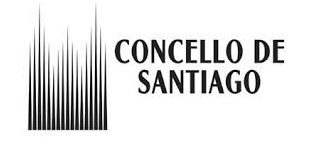 The University of Santiago de Compostela (USC, 1495), hosts ~25,000 undergraduate students and more than 3,000 PhD students. Research and Technology Development is one of the most important activities in USC with more than 250 research teams offering a high quality scientific production in different areas. The USC has participated in more than 70 FP7 projects, and is currently involved in 15 H2020 projects. USC is participating in this project through the CiTIUS (Research Center in Information Technology), one of the 3 Research Centers of the Campus Vida.
The University of Santiago de Compostela (USC, 1495), hosts ~25,000 undergraduate students and more than 3,000 PhD students. Research and Technology Development is one of the most important activities in USC with more than 250 research teams offering a high quality scientific production in different areas. The USC has participated in more than 70 FP7 projects, and is currently involved in 15 H2020 projects. USC is participating in this project through the CiTIUS (Research Center in Information Technology), one of the 3 Research Centers of the Campus Vida.
Persons involved:
-
-
- José Ramón Ríos Viqueira, Unit Leader
- José Angel Taboada González
- José Manuel Cotos Yañez
- Julián C. Flores González
- David Martínez Casas, ICT Expert
- David Luaces Cachaza, ICT Expert
- José Antonio Souto González, Environmental Expert (Sensors-Model)
- David Cartelle Fernández, Environmental Expert (Model) – USC-Troposfera
- Angel Rodríguez López, Environmental Expert (Model) – USC-Troposfera
- Juan José Casares Long, Environmental Expert
- Xabier Diz Gerpe, Environmental Tech.
-
City of Modena (CMO) – Italy
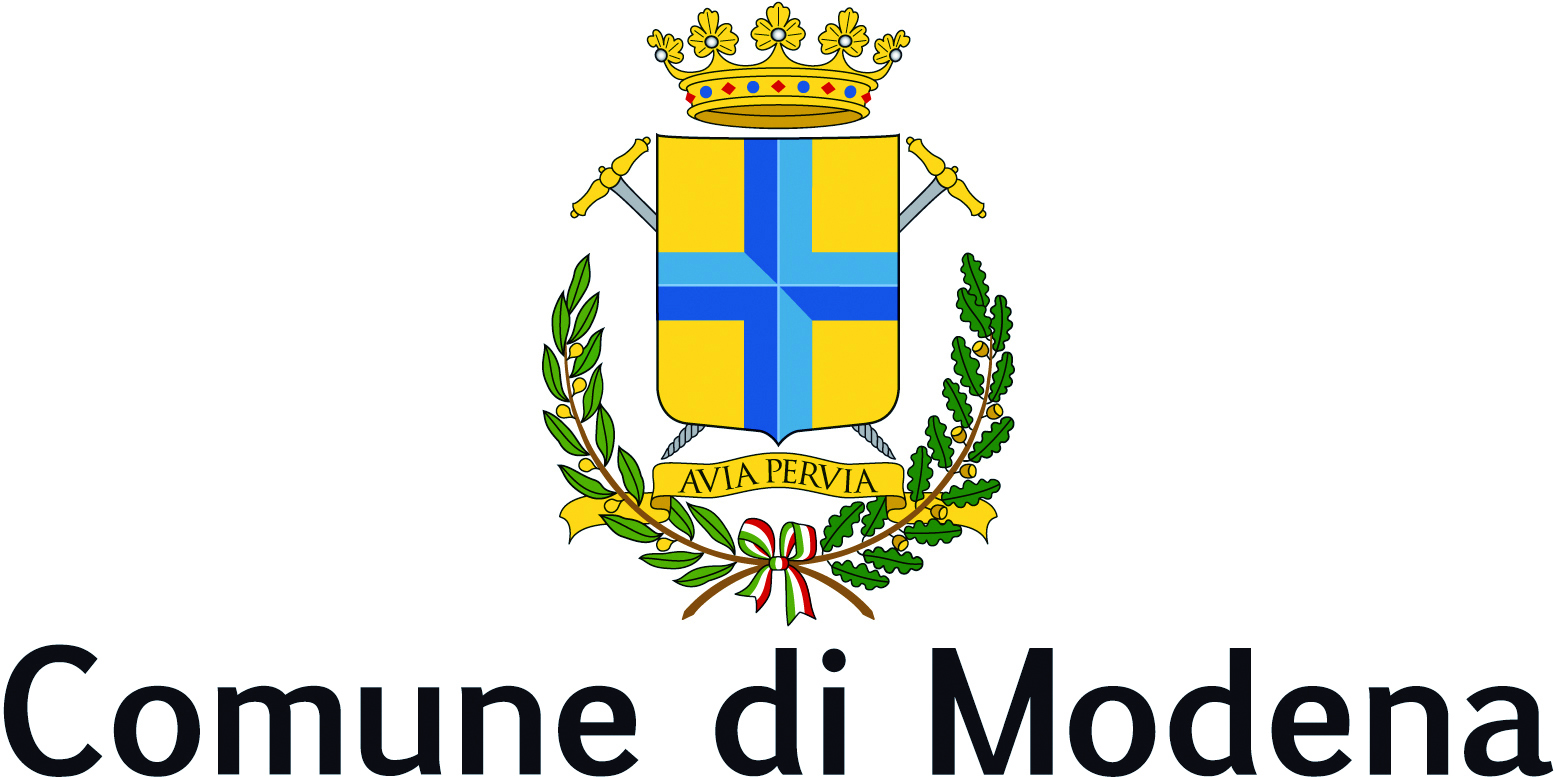 The City of Modena is a public body, the local authority governing Modena, a city of about 185.000 inhabitants located in Northern Italy, Emilia-Romagna Region. Modena is a very active city, well known for its strong economy (primarily mechanics, ICT, agri-food sectors), the high quality of its social service system, the capacity to innovate in several fields. In recent years, Modena has become a quite popular tourist destination, thanks to its beautiful historic centre, including a UNESCO site, and the great variety of its cultural offer. The City of Modena includes 1.637 employees.
The City of Modena is a public body, the local authority governing Modena, a city of about 185.000 inhabitants located in Northern Italy, Emilia-Romagna Region. Modena is a very active city, well known for its strong economy (primarily mechanics, ICT, agri-food sectors), the high quality of its social service system, the capacity to innovate in several fields. In recent years, Modena has become a quite popular tourist destination, thanks to its beautiful historic centre, including a UNESCO site, and the great variety of its cultural offer. The City of Modena includes 1.637 employees.
Persons involved:
-
-
- Luca Chiantore, Unit Leader
- Luca Ferrari, responsible of traffic sensors and server PostgreSQL in Modena
- Guido Calvarese, Mobility and Traffic Service
- Giuseppe Caruso, responsible of European projects
- Lucrezia Lattanzi, responsible of European projects
- Silvia Bernardi, Mobility and Traffic Service
- Giulia Ferrari, Mobility and Traffic Service
- Barbara Cremonini, Mobility and Traffic Service
- Valentino Vaia, LORA network
-
Tuscany Region (TR) – Italy
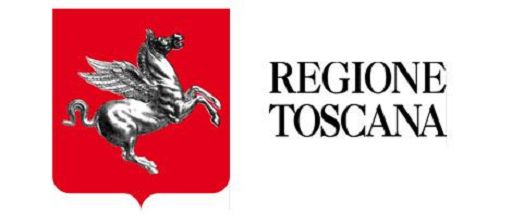 The project will be implemented by the Department “Technologies and Infrastructures for the development of the Information Society. The historical mission of the Department involved since the 1990s has been the design and implementation of policies and strategies for the development of Information Society in Tuscany, both within the citizenry and the cooperative networks of social and institutional agents that substantiate the governance model of the Region.
The project will be implemented by the Department “Technologies and Infrastructures for the development of the Information Society. The historical mission of the Department involved since the 1990s has been the design and implementation of policies and strategies for the development of Information Society in Tuscany, both within the citizenry and the cooperative networks of social and institutional agents that substantiate the governance model of the Region.
Persons involved:
-
-
- Davide Bruno, Unit Leader
- Sergio Papiani
- Elettra Iannone
- Francesca Bargellini
- Marco Giovannetti
- Grazia Ugolini
- Leonardo Borselli
-
City of Santiago de Compostela (CSC) – Spain
 The City Council of Santiago de Compostela is the administration that manages, at the local level, the city and its municipal area, all aspects related to its competences, as reflected in spanish legislation.
The City Council of Santiago de Compostela is the administration that manages, at the local level, the city and its municipal area, all aspects related to its competences, as reflected in spanish legislation.
Persons involved:
-
-
- Rafael Rodríguez Gayoso, Unit Leader
- Milagros Castro Sánchez, Councillor
- Angel Perez Otero, Enviroment Expert
- Eva Ezcurra de la Iglesia, European projects manager
- Antón Varela Tourón, Mayor Cabinet Advisor
-
Fundación Centro Tecnológico de Supercomputación de Galicia (CESGA) – SPAIN
 CESGA is a public foundation whose trustees pertain to the Regional Government of Galicia and to CSIC (Spanish National Research Council). It was created in 1993 to provide High Performance Computing and Communications to the Research Centres and Universities.
CESGA is a public foundation whose trustees pertain to the Regional Government of Galicia and to CSIC (Spanish National Research Council). It was created in 1993 to provide High Performance Computing and Communications to the Research Centres and Universities.
Persons involved:
-
-
- Javier Cacheiro López, Unit Leader
- Ignacio López Cabido
- Andrés Gómez Tato
- José Carlos Mouriño Gallego
- Carlos Fernández
- Cecilia Grela
-
Universidad de Zaragoza (UNIZAR) – SPAIN
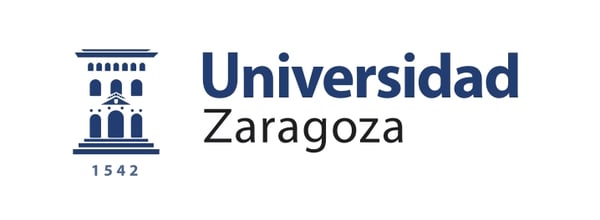 The University of Zaragoza (UNIZAR, 1542) is one of the oldest Universities in Spain, and along its history has counted among its students with important figures such as Santiago Ramón y Cajal. Nowadays, it is the main centre of technological innovation in the Ebro Valley and the only public university in the region (Aragón). It hosts ~30,000 undergraduate students, ~5,000 master and PhD. students and ~3,000 faculty members.
The University of Zaragoza (UNIZAR, 1542) is one of the oldest Universities in Spain, and along its history has counted among its students with important figures such as Santiago Ramón y Cajal. Nowadays, it is the main centre of technological innovation in the Ebro Valley and the only public university in the region (Aragón). It hosts ~30,000 undergraduate students, ~5,000 master and PhD. students and ~3,000 faculty members.
Persons involved:
-
-
- Raquel Trillo Lado, Unit Leader
- Javier Nogueras-Iso
- Sergio Ilarri
- Javier Fabra Caro
- Ramon Hermoso
- Lorena Marrodán, Environmental Expert
- Uxue Alzueta, Environmental Expert
- Yolanda García Castillo, ICT Expert
-
Lepida ScpA – Italy
 LepidaSpA is an in-house providing company established by a Regional Law (11/2004, ‘Regional Development of the Information Society’). It was created in the end of 2007 by the Emilia-Romagna Regional Government (as unique shareholder and founder) to represent the operational instrument in the service of its shareholders. Currently it counts 436 shareholders, all Public Administrations, Public Entities and Universities.
LepidaSpA is an in-house providing company established by a Regional Law (11/2004, ‘Regional Development of the Information Society’). It was created in the end of 2007 by the Emilia-Romagna Regional Government (as unique shareholder and founder) to represent the operational instrument in the service of its shareholders. Currently it counts 436 shareholders, all Public Administrations, Public Entities and Universities.
Persons involved:
-
-
- Teresa Gallelli, Unit Leader
- Sergio Duretti
- Stefania Nanni, responsible of SensorNet
- Elisa Benetti, responsible of SensorNet
-
Consiglio Nazionale delle Ricerche, Istituto per la BioEconomia – Italy
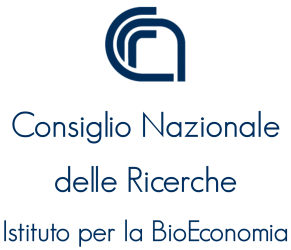 Institute of Bioeconomy (IBE) was born in 2019 by the merge of Institute of Biometeorology (IBIMET-CNR) and Trees and Timber Institute (IVALSA CNR). IBIMET CNR was founded in Florence in the late ’70s as an Institute of Environmental Analysis and Remote Sensing applied to Agriculture – IATA, to carry out research in the field of meteorology applied to agriculture and environment. With a continuous updating of scientific and technical skills, IBIMET is now located in Florence, Bologna, Sassari and Rome. IBIMET is engaged in a wide spectrum of research activities in basic and applied meteorology, climatology, crop yield forecasting systems, remote sensing for ecosystem analysis, socio-economic development in agriculture and forestry at different scales and over several distinct geographical areas with particular attention to developing countries.
Institute of Bioeconomy (IBE) was born in 2019 by the merge of Institute of Biometeorology (IBIMET-CNR) and Trees and Timber Institute (IVALSA CNR). IBIMET CNR was founded in Florence in the late ’70s as an Institute of Environmental Analysis and Remote Sensing applied to Agriculture – IATA, to carry out research in the field of meteorology applied to agriculture and environment. With a continuous updating of scientific and technical skills, IBIMET is now located in Florence, Bologna, Sassari and Rome. IBIMET is engaged in a wide spectrum of research activities in basic and applied meteorology, climatology, crop yield forecasting systems, remote sensing for ecosystem analysis, socio-economic development in agriculture and forestry at different scales and over several distinct geographical areas with particular attention to developing countries.
Persons involved:
-
-
- Alessandro Zaldei, Unit Leader
- Carolina Vagnoli
- Giovanni Gualtieri
- Federico Carotenuto
- Francesca Martelli
- Beniamino Gioli
-
The Consortium can also benefit from collaborations of external partners, such as the meteorological regional agency, MeteoGalicia (that is actually working in strict collaboration with the USC) and the City of Zaragoza (that is actually working in strict collaboration with the UNIZAR). The Italian Institute for Environmental Protection and Research (ISPRA) and the Italian Alliance for Sustainable Development (ASviS) have expressed their interest in the project.


